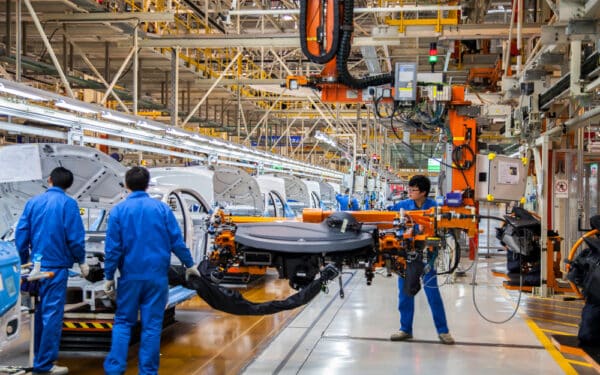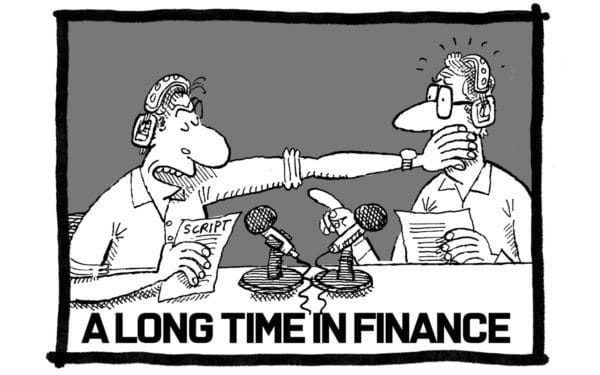A personal view from Ian Stewart, Deloitte’s Chief Economist in the UK. Subscribe to & view previous editions at: http://blogs.deloitte.co.uk/
In the last decade Britain and the US have experienced an unusual combination of soaring asset prices and sluggish wage growth.
Between 2006 and 2016, the total value of assets held by UK households rose by 59% while average incomes increased by just 24%.
In the UK roughly 40% of household wealth is held in pensions, 40% in property, 10% in other financial assets such as ISAs and 10% in physical assets. The median UK household, the one in the middle of the wealth distribution, is asset rich. Such a household owns net assets, after liabilities such as mortgages and credit card debt, of £259,000.
In the UK, as in other Western nations, wealth is spread unevenly. The wealthiest 10% of households own 44% of all wealth. The least wealthy 50% of households own 9% of total wealth.
The divide between holders of assets and those without assets has widened, especially in relation to housing. According to the Resolution Foundation it takes about 20 years for low and middle income households to save for a deposit for a house, up from just three years in 1997.
Perhaps it’s no surprise that all of this has stoked interest in the distribution of wealth. In the last ten years Google searches for “wealth inequality” have been running at about twice the rate they were in the decade until 2007.
Some argue that the appropriate response to rising wealth inequality is to tax wealth and capital more heavily.
Earlier this year Rachel Reeves, a senior Labour MP and Chair of the Commons business select committee, called for an additional £20bn a year in wealth taxes. Labour’s new leader in Scotland, Richard Leonard, has called for a one-off wealth tax and heavier taxation of more valuable housing and land. In February Labour’s Shadow Chancellor, John McDonnell, said his party was considering taxing land values to boost local authority spending. Earlier this month the Resolution Foundation proposed replacing inheritance tax with a tax on gifts paid by recipients which would, in time, yield more than twice as much revenue as the current system.
Yet in recent decades the tide has gone in the opposite direction. The arguments against taxes on wealth and capital – that they are unfair, deter enterprise and saving, “lock in” wealth and boost tax evasion – have tended to prevail.
The number of developed countries with an annual wealth tax has shrunk from 12 in 1994 to just four – Spain, Norway, Switzerland and France. (Last year President Macron slashed the burden of France’s wealth tax by restricting it to property). In OECD countries the proportion of total government revenues raised by such taxes has fallen by 60% since the 1960s.
In the UK, inheritance tax (IHT) is especially unpopular. The public consider it to be the most unfair of the major taxes, with only 22% of those polled seeing it as “fair”. Perhaps surprisingly, opposition to inheritance and estate taxes is even stronger among lower than high earners. Such sentiment helps explain the sharp decline in the burden of IHT over the years. Yields from estate and gift duties have fallen from 2.6% of all revenues in 1965 to less than 1% today, leading some to dub it the “voluntary tax”.
Nor, for all the recent focus on inequality and fairness, do voters necessarily respond to redistributive policies in the way that might be expected.
Last year Conservative plans for elderly people to fund care costs from the value of their home played badly with voters, despite the fact that wealthier individuals would have paid more. Conversely Jeremy Corbyn’s suggestion that student fees might be scrapped was thought to be a vote winner, even though it would benefit high earners the most. High-earning graduates repay the largest share of their student loans so they benefit most from the removal of tuition fees.
In the 1970s Britain’s Labour Party flirted with a wealth tax and the idea has recently been getting more air time. And yet Labour’s 2017 manifesto, widely seen as its most left wing since 1983, did not advocate a wealth tax – perhaps partly because of the political risks of doing so.
There are, of course, other lower profile ways of taxing wealth and capital, such as through Stamp Duty and reducing tax reliefs for pensions, other forms of saving and on capital gains. Bands for council tax could be changed to increase levies on higher value properties. Reliefs for inheritance tax could be made less generous. A wide ranging Treasury consultation on IHT is currently underway.
My guess is that people tend to be less concerned about wealth or income inequality than they are about whether their own incomes are rising. If this is the case the real problem of the last ten years has not been rising wealth inequality but stagnating real incomes. Raising spending power, especially for those on middle and lower earnings, is the great challenge. But until that happens, concerns about inequality are likely to loom large.
PS: There’s a perception that robots and technology have destroyed work in the manufacturing sector. It certainly holds in the rich world, where according to Professor Adrian Wood at the University of Oxford, around 50 million manufacturing jobs have been lost since 1985. But Professor Wood’s work suggests that these losses have been eclipsed by an estimated 100 million increase in the number of jobs in manufacturing in emerging market economies. Technology and globalisation seem to have redistributed manufacturing employment within the world economy but also added to the overall number of such jobs.



